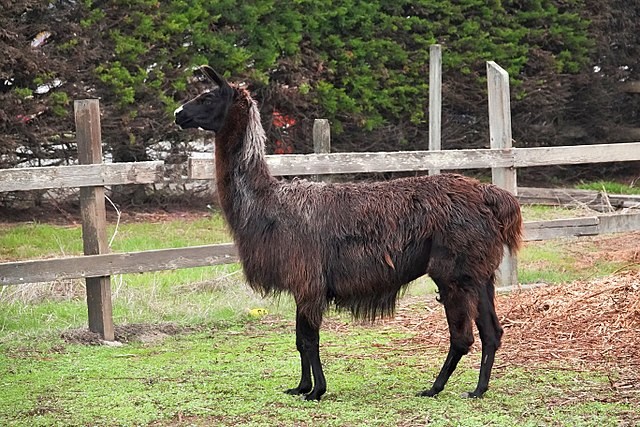Scientists in Belgium and the US are working with an unlikely ally in their relentless search to find a treatment against the new coronavirus (Covid-19): a female llama named Winter.
Researchers from Ghent's VIB-UGent biotechnology centre and from the University of Texas at Austin are racing to determine whether antibodies produced by the research llama offer any promising leads to develop treatments against the novel virus.
The teams are using a type of antibody distinctly created by llamas and other members of the camelid family, Dorien De Vlieger, a doctoral researcher in the study, told RTBF.
Related News
- Dutch scientists discover antibody with potential to fight Covid-19
- Coronavirus: possible second wave predicted in August
- Coronavirus: Belgium reaches 50,781 confirmed cases
"In llamas (...), next to the conventional antibodies we all have —which consist of two heavy chains and two light chains—, you also have a special type of antibodies, which lack the light chains," De Vlieger said.
Upon exposing Winter to a range of coronaviruses, including the one causing the current pandemic but also those behind the MERS and SARS outbreaks, the teams managed to identify and isolate one type of these lighter antibodies.
In an article published in the peer-reviewed journal Cell, the team of scientists said a preliminary test proved that those antibodies successfully attached and neutralise a lab-grown version of the virus.
"The antibody can neutralize a lab variant of the virus, an important step forward in the development of a potential antiviral drug against the new coronavirus," VIB-UGent researchers wrote in an online statement.
The research by the team of scientists, led in Belgium by Dr Xavier Saelens, provides significant insight for health researchers battling to find antivirals to combat the virus causing the Covid-19 pandemic.
Their study allowed them to observe "exactly where the antibody binds to the virus' proteins," the spike-like molecules which cover the virus' surface and which they said are essential for it to enter and infect host cells.
"By targetting these proteins, the antibody can neutralise the virus," the scientists wrote, adding that, in contrast to vaccines, the benefits of antiviral drugs was that they offered immediate, if temporary, protection against a virus.
While not comparable to a vaccine, antiviral drugs could also prove essential for front-line health workers or at-risk groups, the researchers said.
The team of researchers working on either side of the Atlantic is not the only one focusing on developing treatment from antibodies.
On Tuesday, a team of scientists in the Netherlands also said they had identified an antibody which effectively prevented a Covid-19 infection through a "yet unknown mechanism."
Gabriela Galindo
The Brussels Times

